Margaret Thatcher's legacy in Scotland, 25 years after her downfall
- Published
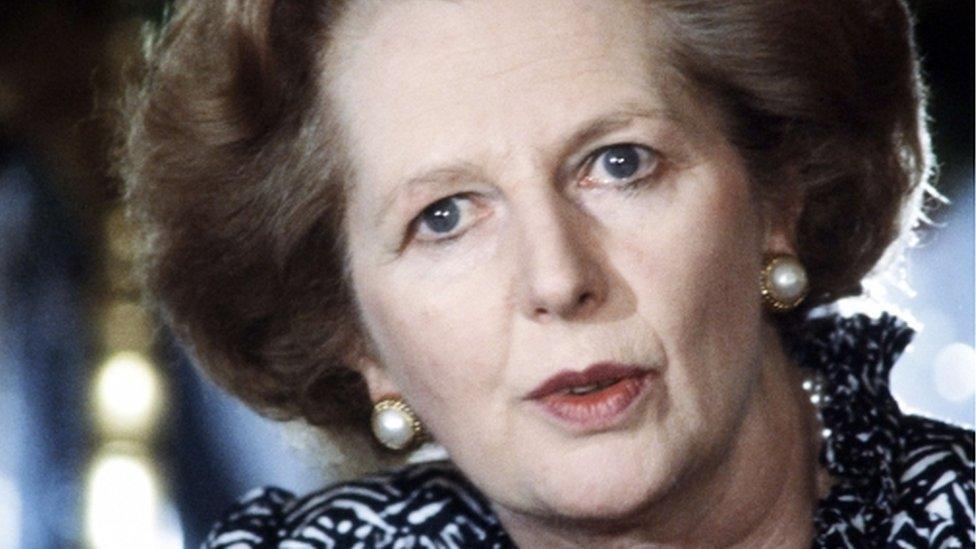
Downing Street is Britain's most famous address. Number 10 is the gateway to political power.
I saw a surprisingly domestic scene when I walked up the street the other night.
The Downing Street cat sat patiently on the doorstep, waiting for an unseen hand to pull open the heavy door.
Twenty five years ago, there was a more highly charged atmosphere.
Britain's first female prime minister emerged from the building to face the press.
Margaret Thatcher had been ousted by her own side.
Geoffrey Howe had resigned as deputy prime minister, frustrated at the way he was being treated by an increasingly strident PM as they rowed over Europe.
She won the first vote in a leadership challenge - but not by enough.
On Thursday 28 November 1990, Margaret Thatcher approached the microphone stand.
There were tears in the eyes of the Iron Lady and that famous low-pitched voice croaked with emotion.
"We are leaving Downing Street for the last time after eleven-and-a-half wonderful years and we're very happy that we leave the United Kingdom in a very, very much better state than when we came here," she said.
"We in Scotland" can certainly have a strident debate about the last statement.
The unusual "we in Scotland" phrase was heavily over-used by the then PM in an interview with BBC Scotland's Kirsty Wark in the spring of 1990.
Commentators at the time said she'd been badly advised to use it.
The then prime minister and her advisers knew how unpopular she was.
Mrs T struggled to connect with Scots, and vice-versa.
'Too much'
Sir Malcolm Rifkind, who was her Scottish secretary from 1986-1990, famously said in one interview about the Scottish view of Thatcher: "She was a woman, she was an English woman and she was a bossy English woman and they could probably put up with one of these but three simultaneously was a bit too much."
Whatever Lady Thatcher was, she certainly made an impact and continues to do so.
The arguments about her time in Number Ten are well-rehearsed.
Her industrial policy was, of course, severely criticised.
The government's economic policy didn't bring inflation under control - unemployment rocketed.
She clashed with the miners and became a hate figure in working class communities, not just in Scotland but across the UK.
The introduction of the "poll tax" in Scotland was supposedly well-intentioned to avoid a disastrous revaluation of domestic rates - but Conservatives paid the price.
James Mitchell, professor of public policy at Edinburgh University's Academy of Government, said: "The perception was, and is, that Margaret Thatcher was anti-Scottish. I'm not convinced she was but perceptions are all important in politics and once that perception started to take hold it's very difficult for the Conservatives.
"I think the legacy is still there. I think the Tories in Scotland are still seen as toxic and it's still to do with Mrs Thatcher, whereas in England I think the Conservatives have walked out of the shadow of Mrs Thatcher - that hasn't yet happened in Scotland.
"I suspect it won't happen for a long time yet to come and there's not a lot the Tories can do about it."
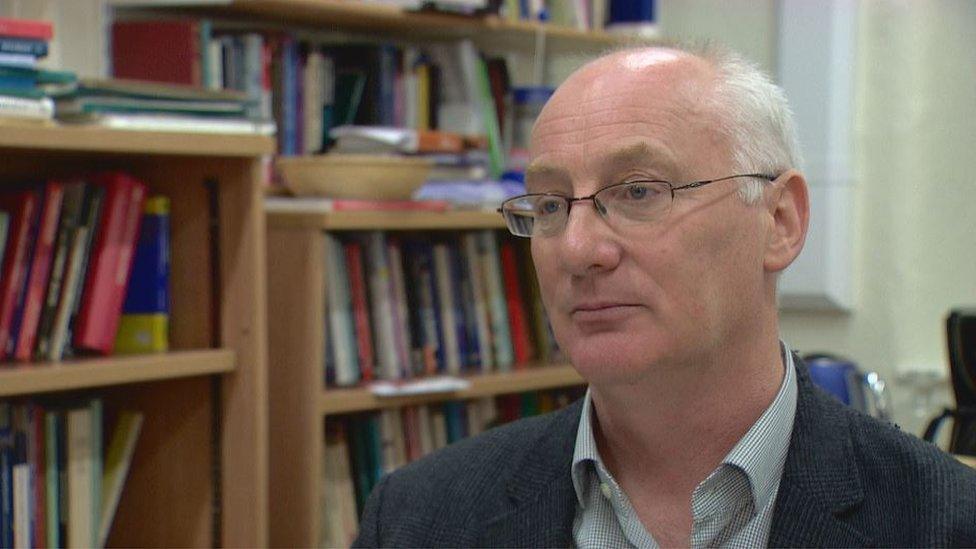
Prof Mitchell believes Mrs Thatcher was seen as anti-Scottish, even if that was untrue
Entrenched views, of course, about a divisive figure.
I've been to the site of the former Ravenscraig steel works near Motherwell. Evidence of the great industry has disappeared, instead there's a very impressive leisure centre that cost £32m.
Steven Miller, the sales and marketing manager from NL Leisure, said: "The response has been fantastic from locals.
"It's a world class venue we've put here on the site of Ravenscraig and we really have a wide breadth of events take place, local, Scottish, European."
A fresh start for the site - but don't go blaming Mrs T for what happened there, according to one commentator.
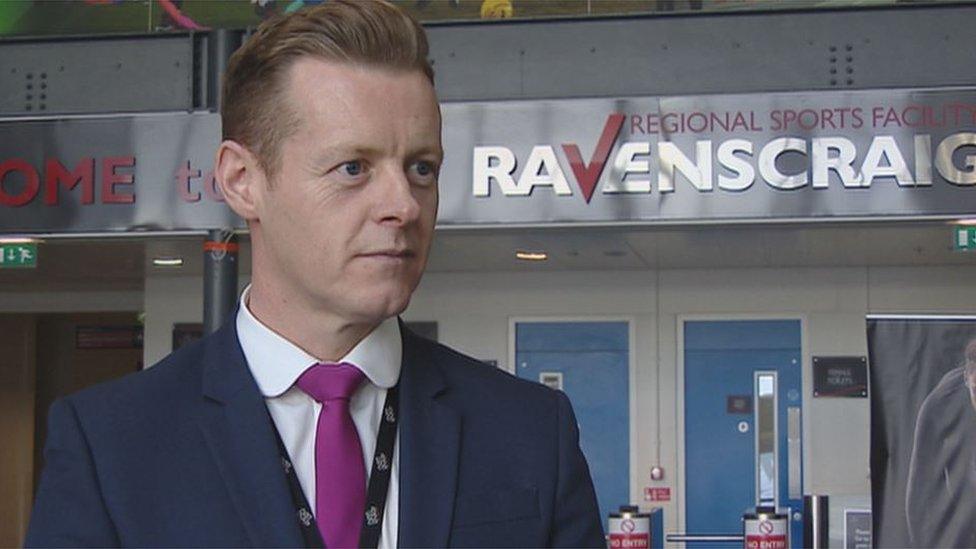
Steven Miller says world-class facilities have been built on the Ravenscraig site
Alan Cochrane, the Scottish editor of The Daily Telegraph, is keen to bust what he sees as common myths surrounding the Thatcher legacy.
"Ravenscraig - she didn't shut it," he insisted.
"It was shut after she packed up and no government could've kept it going with the losses it was making - it was a tragedy that Britain was no longer making steel competitively.
"So the mythology of Thatcher lives on and people continue to hate her but frankly they should be grateful for her."
He also disagrees with Prof Mitchell about the legacy left to the Scottish Tories.
Mr Cochrane said: "To a certain extent there is still a folk memory of people of my age and people approaching my age."
He points out there's a new political generation.
"As the Scottish Conservative leader Ruth Davidson says, she was only ten when Maggie packed up.
"I think they're coming out of the Thatcher nightmare to a large extent but the mythology lives on in Thatcher."
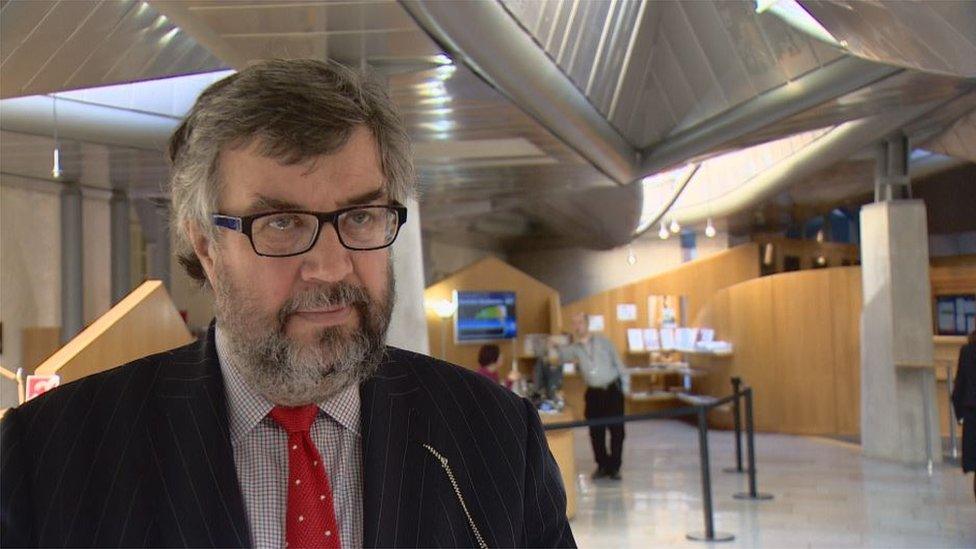
Alan Cochrane believes much of the hostility to Margaret Thatcher is based on a "mythology" about her record
Prof Mitchell agrees Mrs Thatcher continues to live on as a potent symbol but he has a different take on the legacy issue.
"I think today's senior politicians in many cases cut their teeth during the Thatcher years," he said.
"These are people who entered politics during that period when Mrs Thatcher was prime minister.
"They are people whose views were formed in that period and so, in a way, Margaret Thatcher is still alive and with us in a negative way because these are politicians who are deeply opposed, very hostile to Mrs Thatcher so that's how, positively or negatively, very strong figures in politics can have a very long lasting legacy."
When you think of people growing up in that period, look no further than figures such as Nicola Sturgeon and John Swinney of the SNP.
But also consider this. To actively remember the Thatcher years you probably have to be in your mid-to-late 30s.
As the smirring rain falls in Downing Street, the cat is safely inside Britain's seat of government.
Mrs Thatcher didn't survive the "treachery with a smile on its face", as she described her "assassins".
Whatever your view of what was achieved in Number Ten from 1979-1990, it's some political feat for a leader when passionate debate and discussion about her continue 25 years after she left office.
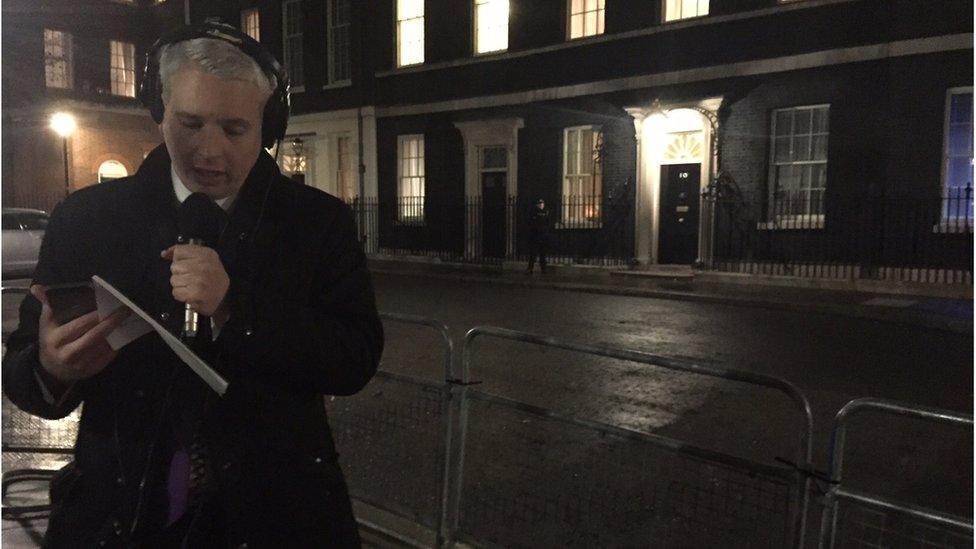
Andrew Kerr prepares for a radio broadcast during a recent visit to Downing Street